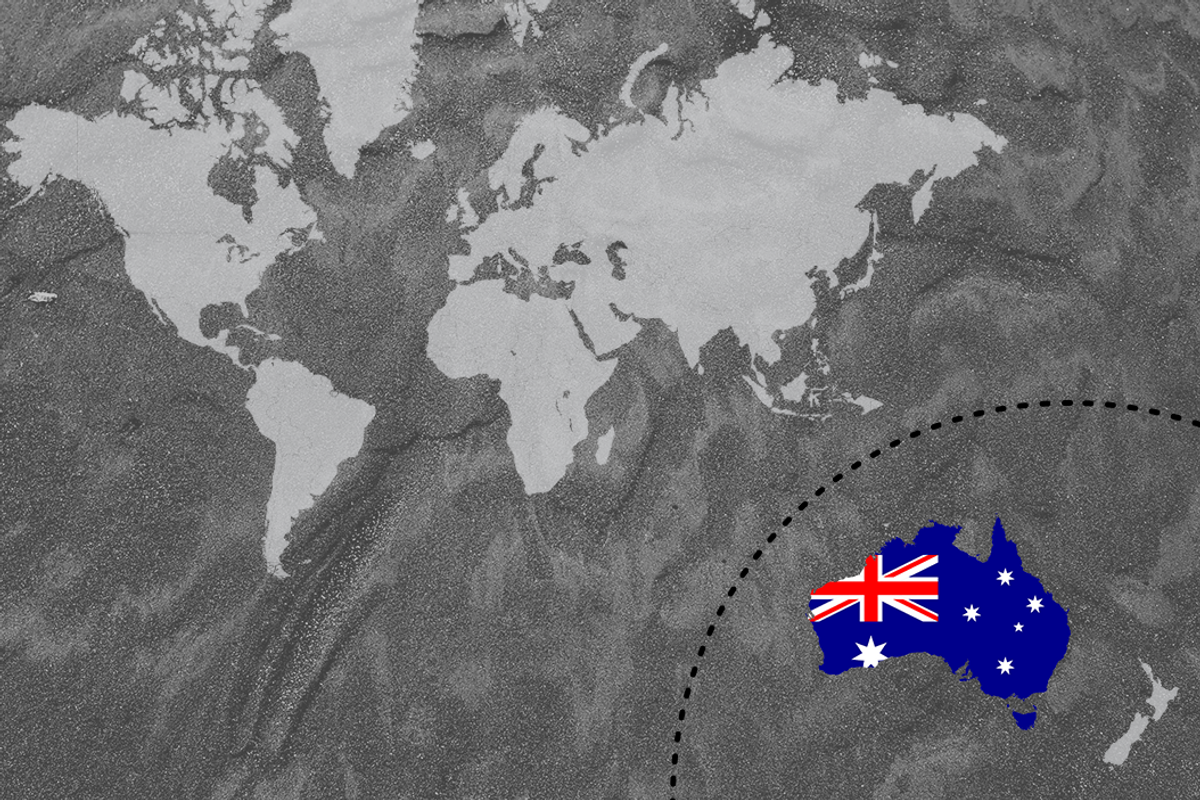Over the past 18 months, national governments have tried a lot of different stuff to get the relentless pandemic under control. These approaches range from the radical (hello, Sweden), to the punitive, to the downright risible.
Naturally, I have been focused on the goings on down under in Australia, my home country, where the people I care about most have been hermetically sealed off from the rest of the world since March 2020.
The Australian government has enforced the most stringent curbs on movement of any democratic country in the world. Its punishing international travel ban, which includes blocking Australians from leaving the continent, has been likened to North Korea. So what's been happening, and why does it really matter?
Fortress Australia: Since the beginning, the Australian government has pursued azero COVID strategy, setting the expectation that anything above naught cases a day would be deemed an outright political and public health failure.
As a result, Australia's borders have been closed to many of its citizens and permanent residents. Arbitrary entry caps have meant that some 34,000 Australian citizens abroad who want to come home remain in limbo. That's 8,000 more people than in September 2020, when Prime Minister Scott Morrison vowed that any Aussie who wanted to get back by Christmas that year would likely be able to do so. No worries, he implied.
Since then, Australia's border policies have only gotten more extreme — and more punishing. Back in May, when India's healthcare system was buckling amid a catastrophic COVID wave, Canberra said that anyone trying to enter the country who had been in India — including Australian nationals — would risk a 5-year jail term, a $66,000 fine, or both. As of May, at least 54 Australians abroad had died from COVID-19 while awaiting Canberra's approval to return home.
And more recently, the federal government doubled down, saying that any expats who travel back to Australia for a visit (if they manage to get a flight) will need permission to leave the country thereafter. (Stranded Australians have to self-fund their mandatory 14-day quarantine stay at a hotel, which comes out to $3,000 a head.)
This all raises a fundamental question: Do people have the right to return to their home country? Well, yes. The UN Declaration of Human Rights says plainly: "Everyone has the right to leave any country, including his own, and to return to his country." Yet, Australia, which has long seen itself as a fair-dinkum society, has abandoned its citizens during a once-in-a-generation global crisis. Many Australians are asking: what value is a passport if you can't use it to get home in an emergency?
International players are also watching disapprovingly. In April, the UN called on Canberra to "facilitate and ensure" the prompt return of several citizens, including a vaccinated US-based couple who were blocked from visiting a cancer-stricken relative. But the harsh policy remains intact.
A big part of the problem stems from the fact that unlike most liberal democracies, Australia does not have an entrenched bill of rights. While some human rights are entrenched in the Constitution, they are extremely limited in scope. Indeed, this dynamic raises questions about what responsibility a democratic state has to its citizens in the first place. I posed this question to a few Australian friends living in New York City who are also frustrated with Canberra's hard-line decision-making. Here are some of their thoughts:
Tali Benjamin: At the simplest level, a democratic state has the responsibility to be a place of refuge to its citizens — their home, the place they can always return to if they choose.
Alon Takac: Several times this year I've asked myself; what's actually the point of being an Australian citizen? I used to think that citizenship meant that you always have a 'home' to return to, especially in a time of crisis. That might still be true in general. But not for Aussie citizens living abroad, who have essentially been locked out of our home country by our government.
Daniel Bookman: The contract we had with our home country has been violated. It was difficult enough to get home before the government quietly changed the regulations to create the real possibility that those of us who return for a visit may not be able to leave.
But what happens if this hermetic approach resonates with many Aussie voters? Poll after poll has shown that a majority of Australians — a whopping 85 percent back in December — support the Morrison government's all-or-nothing COVID strategy.
That number is even higher for some state governments that have sealed themselves off from neighboring states. Despite undergoing rolling lockdowns for the past 18-months (Victoria recently entered its sixth lockdown ), Victorians still prefer Dan Andrews as premier (the Australian equivalent of a US governor) to all other candidates. Meanwhile, electorates across Queensland, Tasmania, and Western Australia have delivered solid electoral victories for state governments competing for the tough-on-COVID awards.
No easy answers. A democratic government pledges to protect its citizens, but what happens when citizens disagree on what constitutes safety and security? For some, it means keeping a brutal disease out of the country at all costs. For others, it's the assurance of being allowed to return home at a time of need.






